Columbus Day Celebration Traditions and Modern Perspectives
Columbus Day celebrates Christopher Columbus’s arrival in the Americas in 1492. It is observed in the United States mostly on the second Monday of October and is meant to honor this historic event. The day has a long history and has been marked by various traditions, including parades and public ceremonies.
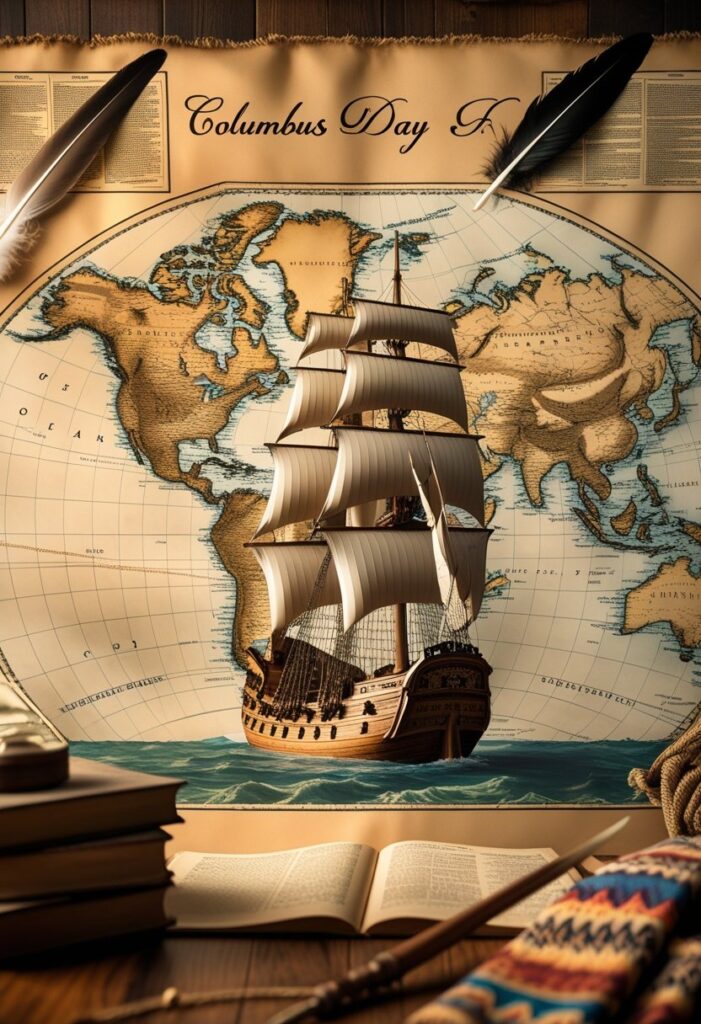
While initially created to recognize exploration and discovery, Columbus Day’s celebration varies widely across different states and communities. Some observe it as a formal holiday, while others focus on recognizing Native American heritage instead. The mix of observances shows how the holiday continues to evolve in meaning and importance.
Many cities hold parades and cultural events to mark the occasion, reflecting the diverse ways people choose to remember history. The celebration can be both a time of pride and reflection, depending on community views of Columbus’s legacy.
Key Takeways
- Columbus Day marks the landing of Christopher Columbus in 1492.
- Observance and celebrations differ widely across the U.S.
- The holiday inspires both cultural events and ongoing discussions about history.
Origins and Historical Background
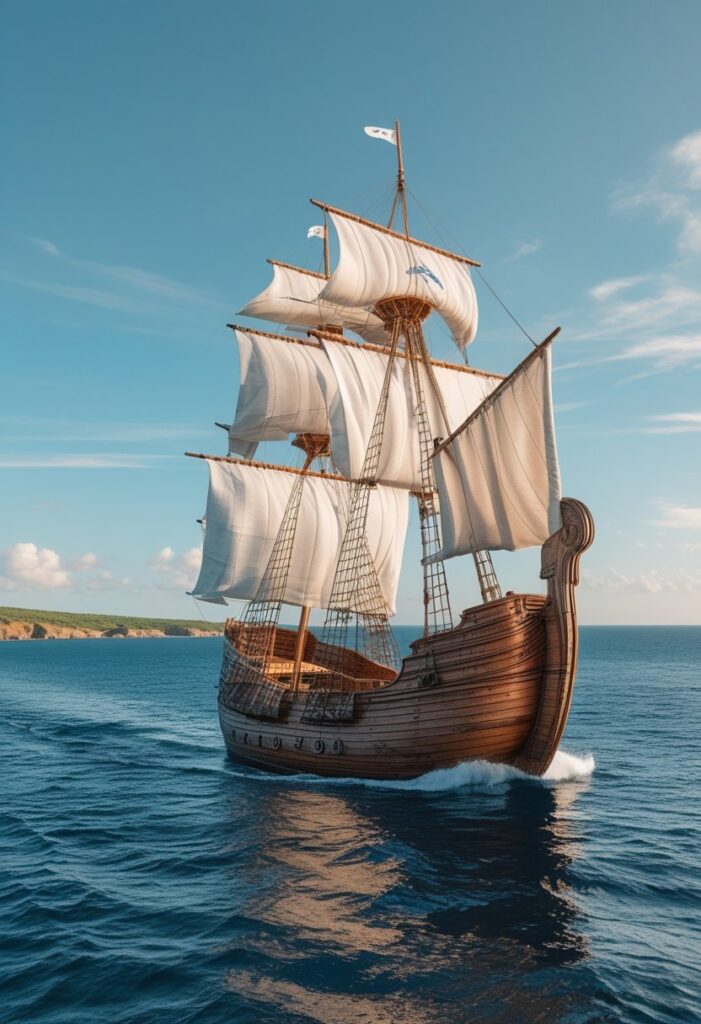
The story of Columbus Day begins with Christopher Columbus’s journey across the Atlantic Ocean. His 1492 voyage on behalf of Spain led to the first lasting European contact with the Americas. The holiday also connects to early celebrations marking Columbus’s arrival in the New World and its significance for European exploration.
Christopher Columbus and the Voyage of 1492
Christopher Columbus was an Italian explorer sponsored by the Spanish monarchs, King Ferdinand and Queen Isabella. In 1492, he set sail west across the Atlantic Ocean to find a new route to the East Indies.
On October 12, 1492, Columbus and his crew landed on an island in the Caribbean, part of the present-day Bahamas. They called this land the New World, believing it was the edge of Asia. Columbus eventually explored the island of Hispaniola, now home to Haiti and the Dominican Republic.
The success of this voyage opened the door for further European exploration and colonization of the Americas. Columbus’s journey became a historic event because it changed global trade routes and expanded European influence.
Columbus’s Encounter with the New World
Upon arrival, Columbus and his crew met native peoples and claimed the lands for Spain. They hoped to find wealth and spread Christianity. Columbus’s reports described the natural richness of the islands, which encouraged Spain to invest in further expeditions.
Columbus’s treatment of indigenous peoples was harsh, leading to conflict and suffering. This aspect is a critical part of his legacy, reflecting the complicated aftermath of European colonization.
The landing on October 12 is significant because it marks the start of sustained European presence in the Americas, which reshaped the world’s political and cultural landscape.
Early Columbus Day Observances
The first known celebration of Columbus Day in the United States occurred in 1792. It marked the 300th anniversary of Columbus’s landing. Early observances recognized Columbus as a symbol of discovery and Italian-American pride.
Communities, especially Italian immigrants, embraced the holiday to highlight their heritage and contributions to American society. Over time, Columbus Day grew into a federal holiday observed on the second Monday in October.
The day honors Columbus’s role in history but also reflects ongoing debates about his impact on indigenous peoples and the legacy of colonization.
Columbus Day in the United States
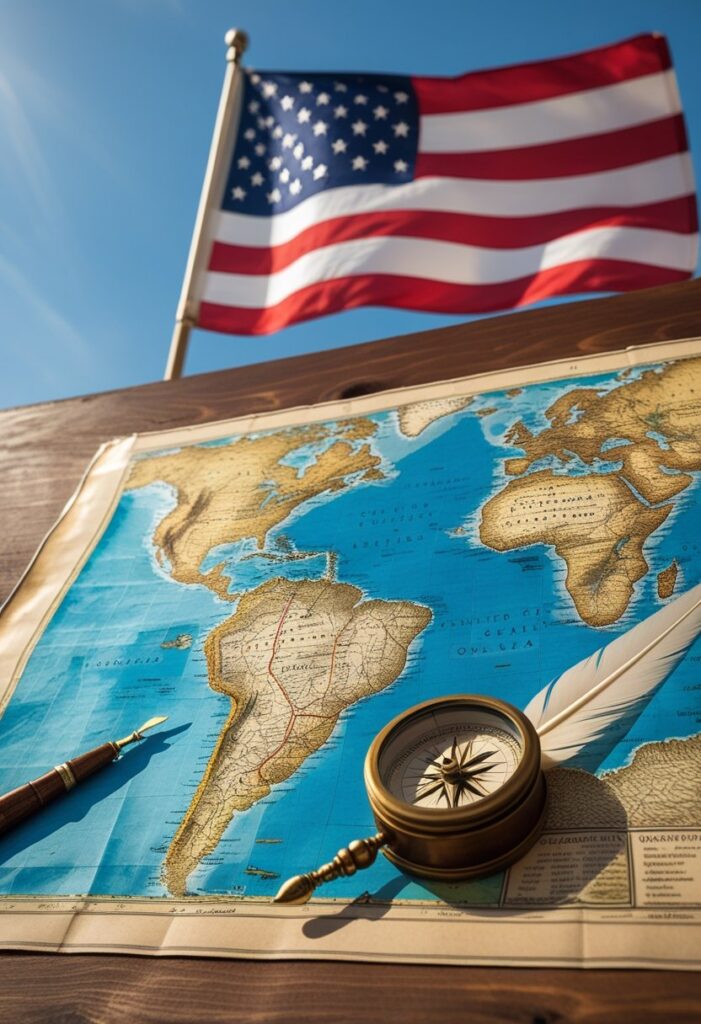
Columbus Day marks the arrival of Christopher Columbus in the Americas in 1492 and has a complex history in the United States. It is recognized as a federal holiday, with many cities hosting parades and events funded by Italian-American groups. The holiday’s federal status was shaped by both cultural pride and political support.
Federal Recognition and National Holiday Status
Columbus Day became a federal holiday in 1937. The date is observed on the second Monday of October each year. This makes it a national holiday across the United States.
However, federal recognition does not mean every state or city observes it the same way. Some regions use the day to honor Indigenous Peoples instead. Still, it remains a day off for many government workers and federal employees.
The establishment of Columbus Day as a federal holiday reflected an effort to unify the country around a shared history.
Prominent Parades and City Celebrations
Large parades and celebrations are common, especially in cities with strong Italian-American communities. New York City holds one of the most famous Columbus Day parades, drawing hundreds of thousands of spectators each year.
San Francisco was the first city to formally celebrate Columbus Day in 1869. Other cities such as Pittsburgh hold both Columbus Day and Indigenous Peoples’ Day events to reflect a wider history.
These parades often feature marching bands, floats, and cultural performances emphasizing Italian heritage.
The events are community-focused and promote recognition of the explorer’s legacy, despite ongoing debates.
Role of Italian-Americans and the Knights of Columbus
Italian-Americans have played a central role in promoting Columbus Day. The holiday began as a celebration of Italian heritage and pride in the late 19th century.
The Knights of Columbus, a Catholic fraternal organization, helped popularize the holiday nationwide. They sponsored events and used Columbus as a symbol of Italian-American identity.
Their efforts supported Columbus Day becoming recognized not just as a day for the explorer but also as a celebration of immigrant contributions.
The Columbian Order in New York, also known as Tammany Hall, held the first organized celebration in 1792, linking political and ethnic pride early on.
Influence of Franklin D. Roosevelt
President Franklin D. Roosevelt officially declared Columbus Day a federal holiday in 1934. This was part of Roosevelt’s broader agenda to promote national unity during the Great Depression.
His administration recognized Columbus Day as a way to honor Italian-American citizens and celebrate their role in American society.
Federal holiday status was formalized a few years later, in 1937, following Roosevelt’s initial declaration.
Roosevelt’s backing gave Columbus Day a stronger place in the country’s official calendar, blending historical recognition with cultural and political goals.
Celebrations and Traditions
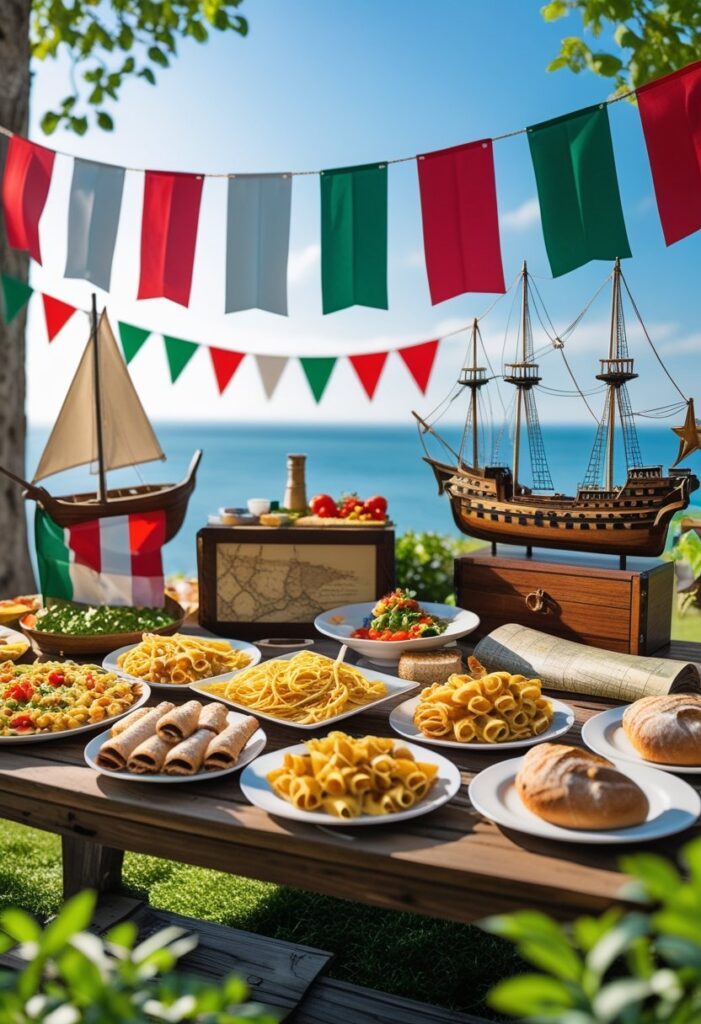
Columbus Day celebrations often center on public gatherings, educational programs, and traditional foods. These events aim to honor the historical significance of Christopher Columbus’s voyage while highlighting Italian-American heritage. The nature of celebrations varies by location, with some cities hosting large parades and others focusing on community activities.
Parades and Community Events
Columbus Day parades remain a key tradition, especially in cities with large Italian-American populations like New York and San Francisco. The New York City Columbus Day parade is one of the largest, featuring floats, marching bands, and participants dressed in historical costumes.
In San Francisco, events include street fairs and cultural performances that celebrate Italian culture alongside the holiday. Many smaller communities also hold parades and local festivals that showcase their unique customs. These gatherings often include speeches, music, and public displays that foster community pride and honor the holiday’s origins.
Educational and Cultural Activities
Many schools and cultural institutions use Columbus Day for educational programs about Columbus’s voyages and their effects on history. These activities aim to provide balanced perspectives, including discussions about the impact on Indigenous peoples.
Museums and libraries may organize talks, exhibits, and workshops. In some places, celebrations also recognize Italian-American contributions to the United States. These events highlight cultural heritage through storytelling, art, and presentations.
Columbus Day Cuisine
Food plays a significant role in Columbus Day celebrations, especially within Italian-American communities. Traditional Italian dishes such as pasta, cannoli, and espresso are commonly enjoyed during gatherings.
Restaurants and family homes often prepare special meals to honor their ancestry. In cities with large Italian-American populations, food festivals may coincide with parades and community events, offering a chance to share and celebrate Italian culinary traditions.
Columbus Day Worldwide
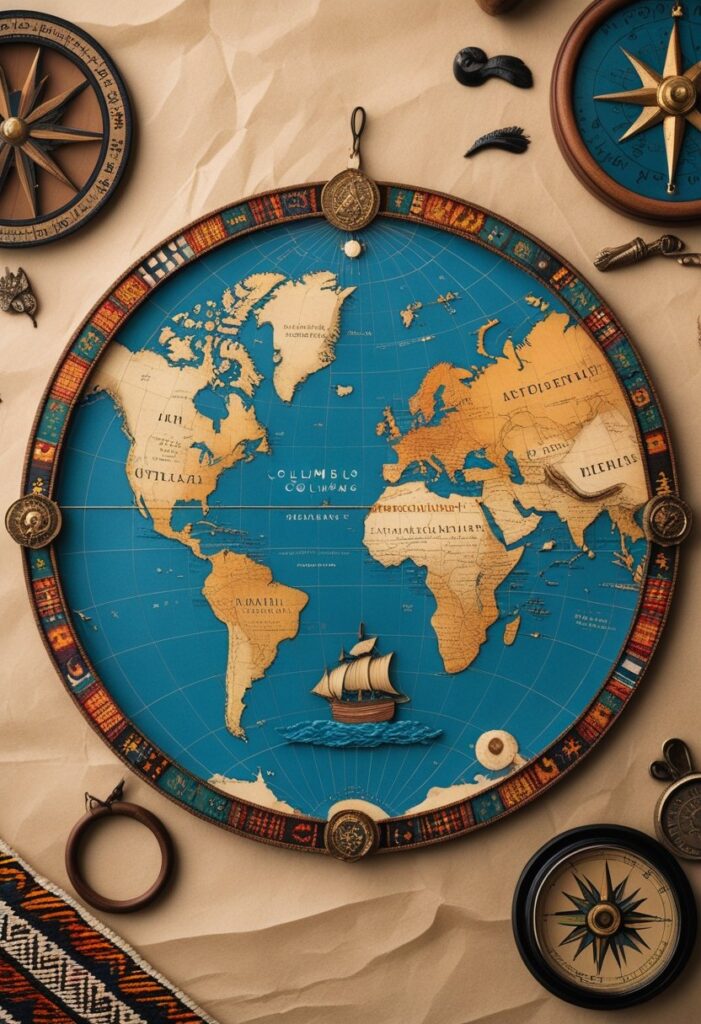
Columbus Day is observed in different ways around the world, reflecting various historical and cultural views. Some countries focus on celebrating indigenous heritage, while others maintain traditions that mark the arrival of Columbus in the Americas.
Día de la Raza and Latin American Observances
In many Latin American countries, the holiday is known as Día de la Raza. It commemorates Columbus’s landing in 1492 but also recognizes the rich indigenous cultures and mixed heritage of the region. Countries like Mexico, Argentina, and Venezuela observe the day with ceremonies and cultural events.
Some places use the day to honor indigenous people and raise awareness about their history and struggles after European colonization. This reflects a growing movement to focus on diversity and reconciliation rather than only celebrating Columbus’s arrival.
Celebrations in Italy and Spain
In Italy, Columbus Day is celebrated as Giornata Nazionale di Cristoforo Colombo. This honors Columbus’s Italian heritage and his role as an explorer. Events often include parades, speeches, and official ceremonies.
Spain marks the day as Día de la Hispanidad or Fiesta Nacional. It celebrates Spain’s historical ties to Latin America. There are military parades and national festivities on October 12, emphasizing Spanish culture and history rather than Columbus alone.
Commemorations in the Caribbean
In the Caribbean, Columbus Day is sometimes called Discovery Day and is observed in countries like Cuba and the Bahamas. The celebrations acknowledge Columbus’s arrival but vary by island.
In Cuba, the day is an official public holiday with cultural events and educational programs. In some Caribbean islands, the day also serves as a chance to highlight indigenous and African heritage, balancing the focus between colonial history and native cultures.
| Region | Name of Holiday | Focus | Typical Observance |
|---|---|---|---|
| Latin America | Día de la Raza | Indigenous heritage and mixed roots | Cultural events, awareness efforts |
| Italy | Giornata Nazionale di Cristoforo Colombo | Columbus’s Italian origin | Parades, ceremonies |
| Spain | Día de la Hispanidad / Fiesta Nacional | Spain’s ties to Latin America | Military parades, national pride |
| Caribbean | Discovery Day (varies) | Columbus’s arrival and local culture | Public events, educational programs |
Controversies and Alternative Commemorations
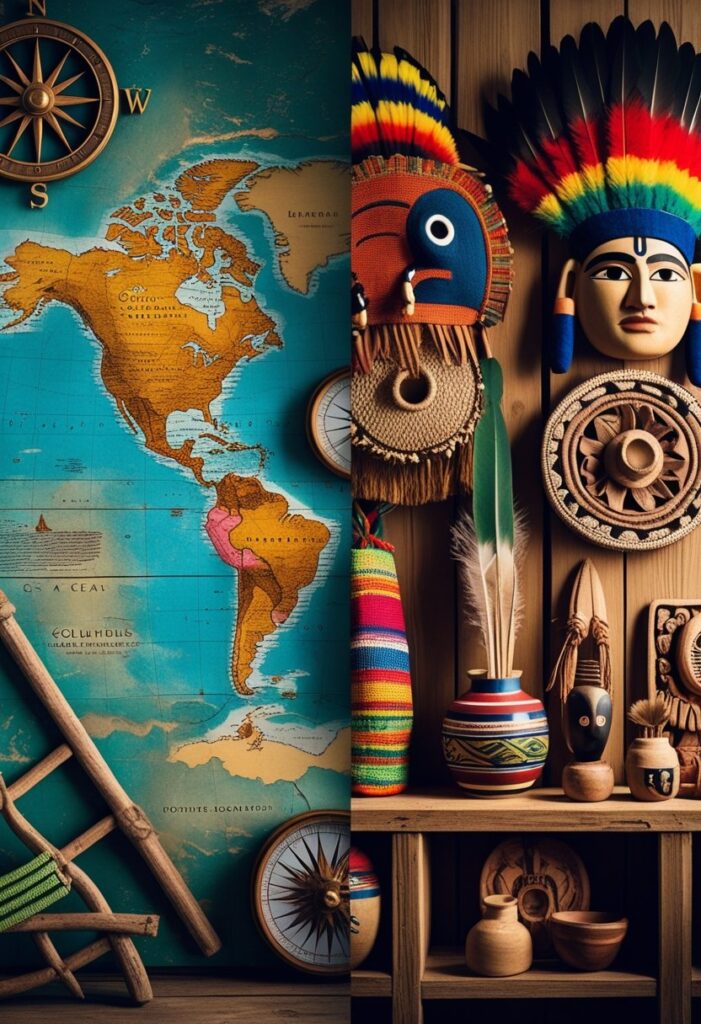
Columbus Day is a holiday filled with debate due to differing views on Columbus’s actions and their effects. Some focus on the harm caused to Native Americans, while others challenge what the holiday represents. Alternative celebrations have emerged, aiming to honor Indigenous cultures instead.
Impact on Native Americans and Indigenous Peoples
Many Native Americans and Indigenous groups view Columbus Day as a painful reminder of colonization. Columbus’s arrival in 1492 led to violence, disease, and loss of land for Indigenous peoples. This history is often seen as being ignored or downplayed in traditional celebrations.
The holiday can feel exclusionary to Native communities affected by centuries of displacement and cultural erasure. These groups emphasize the suffering caused by European settlers rather than the idea of discovery. This perspective has grown more prominent and is a major reason for calls to rethink the holiday.
Rise of Indigenous Peoples’ Day
In response to these concerns, many places now observe Indigenous Peoples’ Day. States like Alaska, Vermont, South Dakota, New Mexico, and Maine have officially adopted this alternative. It aims to celebrate Indigenous history and cultures while acknowledging past injustices.
Indigenous Peoples’ Day promotes awareness and respect for Native communities. It offers an opportunity to educate people about Indigenous contributions and resilience. This movement reflects a shift toward more inclusive and accurate public memory.
Debates on Colonization and Cultural Legacy
The debate over Columbus Day also involves how colonization is viewed. Some see Columbus as a symbol of exploration and Italian-American heritage. However, critics argue that his actions led to the violent colonization of the Americas.
Questions about the legacy of European settlers focus on events like forced labor, cultural suppression, and land seizures. These debates challenge the idea of celebrating Columbus uncritically. The controversy continues as cities and schools decide how to address this complex history.
Legacy and Ongoing Significance
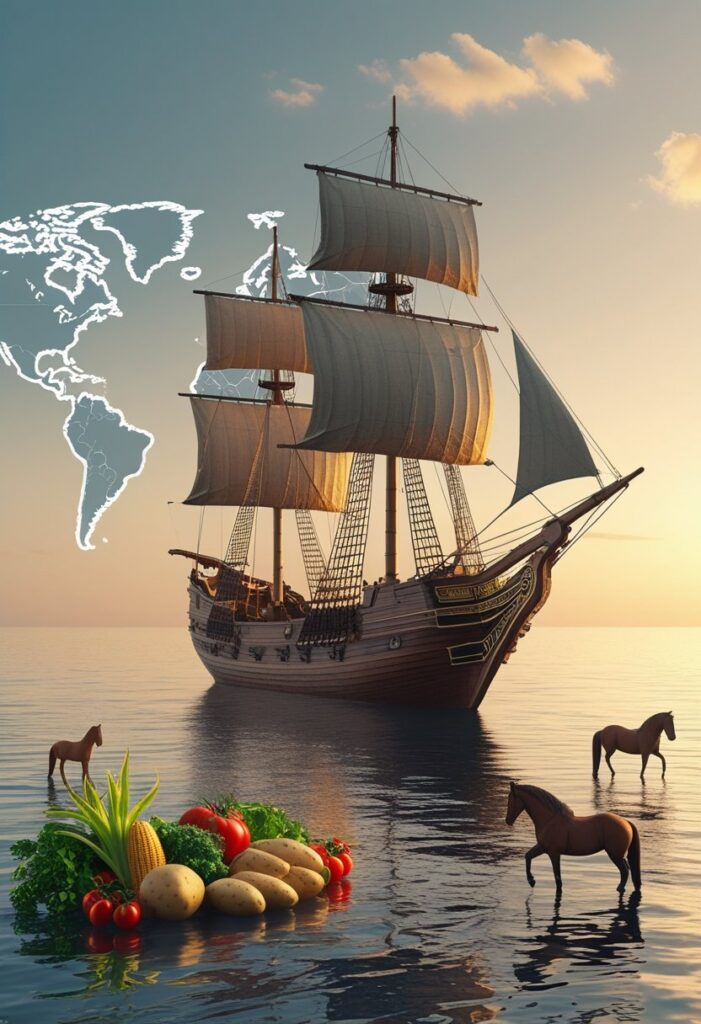
Columbus Day marks more than the arrival of Christopher Columbus in the Americas. His voyages started widespread changes, including the exchange of plants, animals, and diseases between continents. These events shaped history and continue to influence discussions today.
The Columbian Exchange and Its Consequences
The Columbian Exchange began with Columbus’s voyages in 1492. It brought crops like potatoes and maize to Europe while introducing horses and wheat to the Americas. This trade reshaped diets and economies worldwide.
However, the Exchange also caused severe harm. Diseases such as smallpox and influenza were carried by Europeans to Native populations, leading to large-scale deaths. These illnesses greatly reduced the indigenous population, changing the demographic landscape of the Americas.
The Exchange fueled the growing Atlantic slave trade. Europeans began transporting enslaved Africans to work in the New World’s plantations. This legacy is linked to the economic systems and social structures that developed after Columbus’s arrival.
Contemporary Reflections and Cultural Dialogue
Today, Columbus Day is the focus of debate and reflection. Many recognize Columbus’s role in exploration, but others emphasize the harm caused by colonization, especially to Native Americans.
Some states and cities have replaced Columbus Day with Indigenous Peoples’ Day to honor native cultures and histories. This change reflects a growing awareness of the complexities surrounding Columbus’s legacy.
Cultural discussions now balance acknowledging Italian-American heritage linked to Columbus Day with the need to address historical injustices. These conversations continue to shape how the holiday is observed across the United States.
Frequently Asked Questions
Columbus Day involves various types of events and observances across the United States. Different locations celebrate with distinct activities and many schools use it as a time to teach history. The holiday also faces criticism and debate regarding its meaning and impact.
How is Columbus Day traditionally celebrated in the United States?
Columbus Day is often marked by parades and community festivals. The day includes ceremonies honoring Christopher Columbus’s 1492 landing in the Americas.
Many cities hold public events that highlight Italian-American heritage. These celebrations welcome families, feature music, and include cultural displays.
Which cities host the largest Columbus Day events?
New York City hosts one of the biggest and most well-known Columbus Day parades. This parade draws thousands of participants and spectators each year.
Other cities with large events include Chicago and San Francisco. These cities also have strong Italian-American communities that support the celebrations.
How do educational institutions observe Columbus Day?
Schools use Columbus Day as a chance to teach students about exploration and history. Lessons often cover Columbus’s voyages and their effects on the Americas.
Some schools also discuss the perspectives of Indigenous peoples. This approach aims to provide a balanced view of the holiday’s significance.
What controversies surround the observance of Columbus Day?
Columbus Day is controversial because many people criticize the impact of European colonization on native populations. Critics argue the holiday overlooks the suffering caused by colonization.
In response, some places have replaced Columbus Day with Indigenous Peoples’ Day. This change highlights the history and culture of native communities instead.






